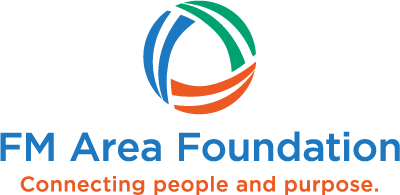Differing views within families are nothing new; differing views about nearly anything and everything is centuries old. For generations and generations, common topics of disagreement have included popular culture, politics, religion, and parenting, just to name a few. Frequently outranking all is money—how it’s made, spent, or saved—or not.
How benevolent families share money, whether agreeably or disagreeably, is a topic all on its own. It’s perhaps never been more relevant than now, given these realities: up to four generations living simultaneously; longer lifespans; more willingness to discuss family finances; differing social views; and the desire of older generations to set a good philanthropic example while retaining some control of assets built over many years.
And the “share” discussion will likely continue for decades.
According to figures cited in a May 2023 New York Times article (subscription required), total U.S. family wealth of $38 trillion in 1989 more than tripled to $140 trillion in 2022, with Baby Boomers and Generation X holding 90% of that. By 2045, older Americans will pass down a projected $84 trillion to Millennial and Gen X heirs, with $16 trillion transferring by 2033. With evermore wealth circulating, both ideas and conflicts about its use will likely result.
As an advisor, it is your responsibility to help your clients achieve their goals for their estate plans, financial plans, and charitable objectives. As you work with your multi-generational philanthropic clients, you have no doubt noticed that even a subject as uplifting as philanthropy can lead to lively discussions and sometimes even disagreements. To fulfill your role, you will need to lean on strategies to navigate conversations about charitable priorities when not everyone is on the same page.
You can also lean on the FM Area Foundation–and we encourage you to do so! Community foundations occupy a unique position in the midst of the unprecedented wealth transfer now underway: that of arbiter, guide, and even peacemaker among benevolent multi-generation families. In addition to understanding the needs of the community, the nonprofits and programs that are addressing those needs, and the ins and outs of the tax vehicles best suited for your clients to help meet those needs, our team is also deeply experienced in facilitating productive dialogue among people who bring valuable, diverse viewpoints to the table.
As a secure, convenient, and trusted partner to help a family invest wealth in charitable causes, the FM Area Foundation can help you work with your philanthropic clients in a variety of ways:
–The FM Area Foundation team focuses on listening to understand the cross-generational and intra-generational values of a family.
–We ask a lot of questions about what causes matter to your clients and the origins of those preferences, both historically and now.
–When possible, we pair FM Area Foundation staff with family members to align according to personality and generation to foster more intimate, empathetic, and meaningful discussions.
–Our team seeks to understand a family’s values, and then we research and suggest potential grantee organizations or causes if the family is seeking input. We can also deeply research organizations that the family is already supporting.
–The FM Area Foundation offers to educate the various generations about tactical opportunities, including donor-advised funds, field-of-interest funds, unrestricted funds, designated funds, and anonymous giving, among others.
–Our team is happy to develop options for multi-cause allocations that peacefully meet the needs of all involved.
–For geographically dispersed generations, our team offers to meet at agreeable intervals, even digitally, to understand a family’s current and changing views.
We are here for you and the philanthropic families you serve. As the needs, capabilities, and opinions around wealth expand, the FM Area Foundation can be a facilitator of conversations, connection, and contributions among well-intended but independently-minded families and help you carry out your professional responsibilities.





